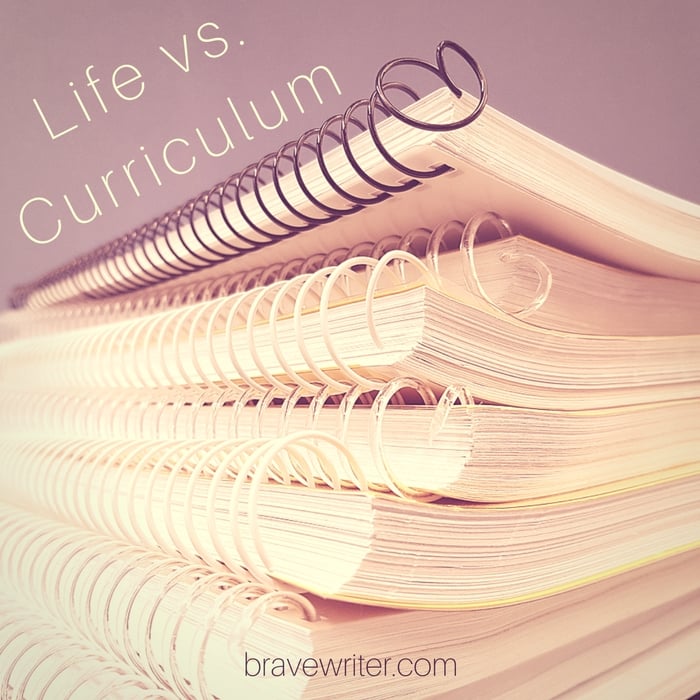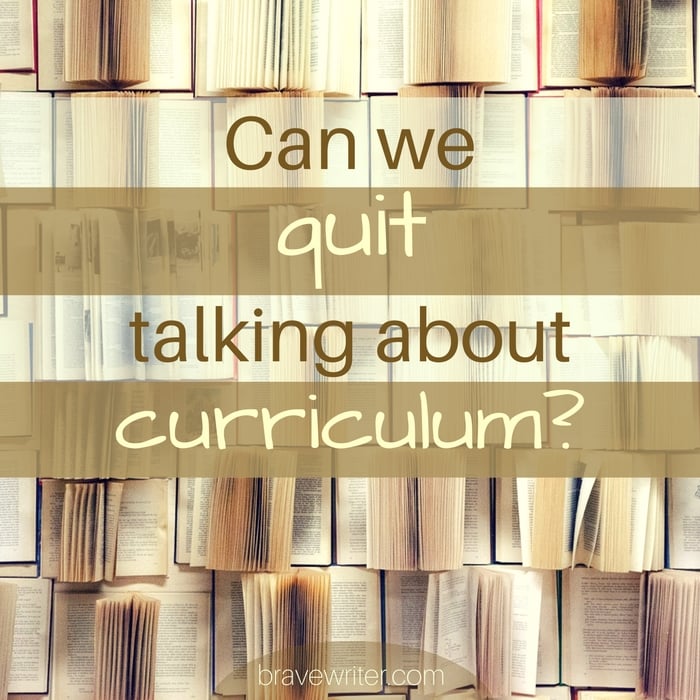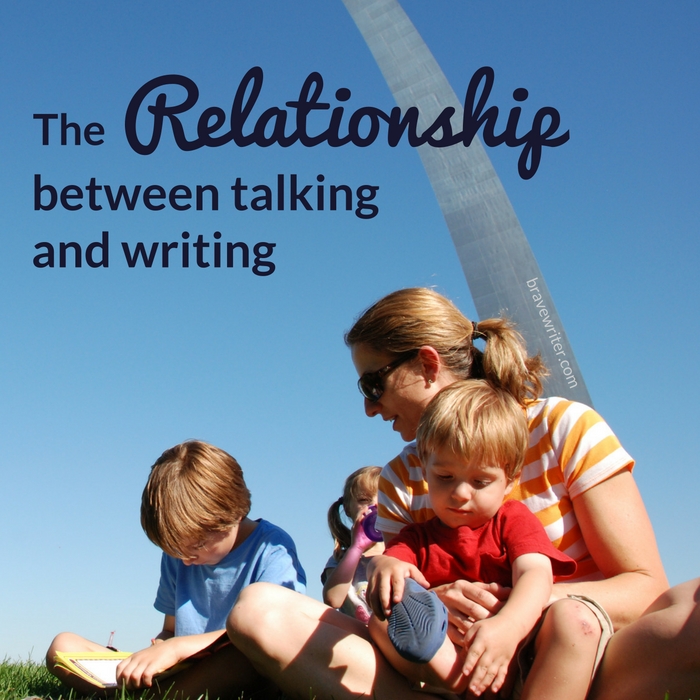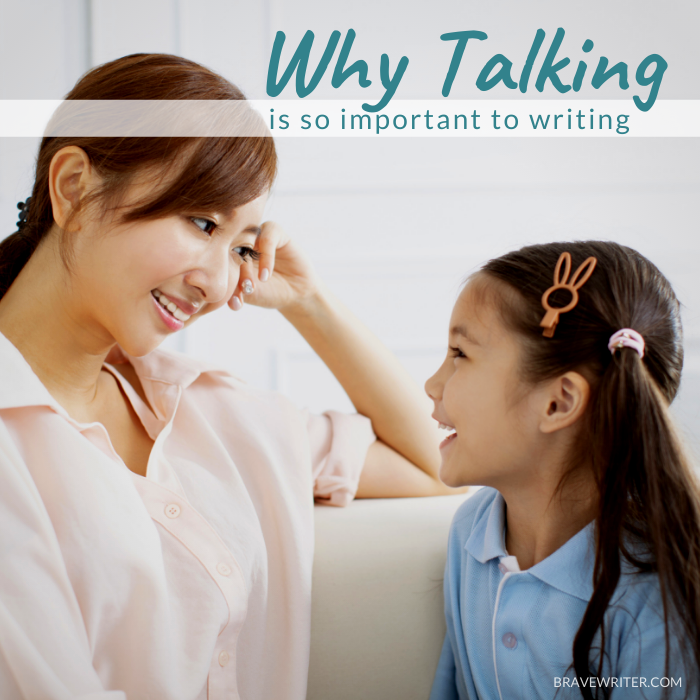
Today, Diane (long time Brave Writer mom) sent me an email that so perfectly related to our topic about curricula (and the vain searches we all make) that I just had to share it with you. Your comments have all been wonderful!
Dear Julie,
After 17 years of home schooling, I finally made it to a home school convention this weekend. I always seemed to talk myself out of going, one, who would watch my children, and two, it would be intimidating. I too fell into the routine of looking for the “perfect” curriculum and so I was never content. I knew if I went to a convention I would fret with a curriculum in my left hand and one in my right struggling over which one to buy, not even giving thought to is it right for that child.
Julie, you have encouraged me these past couple years, and maybe it was originally because my son didn’t seem to fit in the box. I always thought the box was the traditions of buying a packaged curriculum with textbooks, but I have found that the box also includes other routines. I have jumped from one curriculum to the other, never sticking with anything more than 2 years. It is very time consuming looking for the perfect curriculum, actually a time waster. I’ve spent numerous hours on the computer, in discussion groups, then searching websites. This is time I have spent away from my family life. This is time I could have spent talking to them and finding out where their interests lie and doing them.
So, why did I go to our state’s convention this past weekend? I thought I was ready. It would be a refreshing time talking and laughing with friends, which it definitely was. But I had a gnawing feeling in me the past couple months which I couldn’t seem to rid myself of. How does one get through high school science without following the box? You see my son is a hands on learner and enjoys reading books and not textbooks. Sounds like life, doesn’t it. I had shared my concerns with my daughter, now a graduated chemist. She reaffirmed with her experience what I was feeling for her brother. Down deep inside of me, I knew what it was I wanted to do, but would anyone else except it? Could I step out in faith?
My first steps into the convention hall led me to HSLDA who now has a high school website devoted to ministering to families. (By the way, they have a link to Bravewriter) I shared my concerns with one of the ladies at the table and with her words of encouragement I could feel the yoke of bondage slide off. I couldn’t believe the wave of emotion that was released and the liberty I had gained to enjoy my weekend. I listened to speakers that encouraged me in my life relationships. I felt peace as I walked through the aisles of vendors seeing the same thing over and over. I knew right away what I liked and what I didn’t. What I saw was people selling curriculum and books, but where was the enthusiasm for what they were selling? There was little life.
I have been using a lot of living books to direct our learning. It seemed, that the only books I found at the convention, were ones that I have seen over and over, and everyone sells them. It would be refreshing to see some new suggestions for living books. My sons have enjoyed your selection of Animal Dialogues. I was able to use some of the author’s descriptive paragraphs as an example for my children’s writing.
So what did I glean from my week end away. It is a treat to fellowship with those of like interest in person instead of online discussion groups. The conversations can go deeper, and you can get beyond the ‘What curriculum are you using?’. I went home and signed off my discussion lists. This will allow me time to go out and live life along side my children. I will still stop by and read your posts, which I was surprised your last post expressed exactly what I have been feeling, but the computer will no longer control my day. I will make greater effort to get out and live life along side my children while they are still here. I am looking forward to our teatime we have planned at Shakespeare’s Restaurant in a couple weeks. Guess what we will be reading? I will send pictures.
Again, Julie, thank you for all your encouragement to go out and live!
Have a blessed day
Diane

























